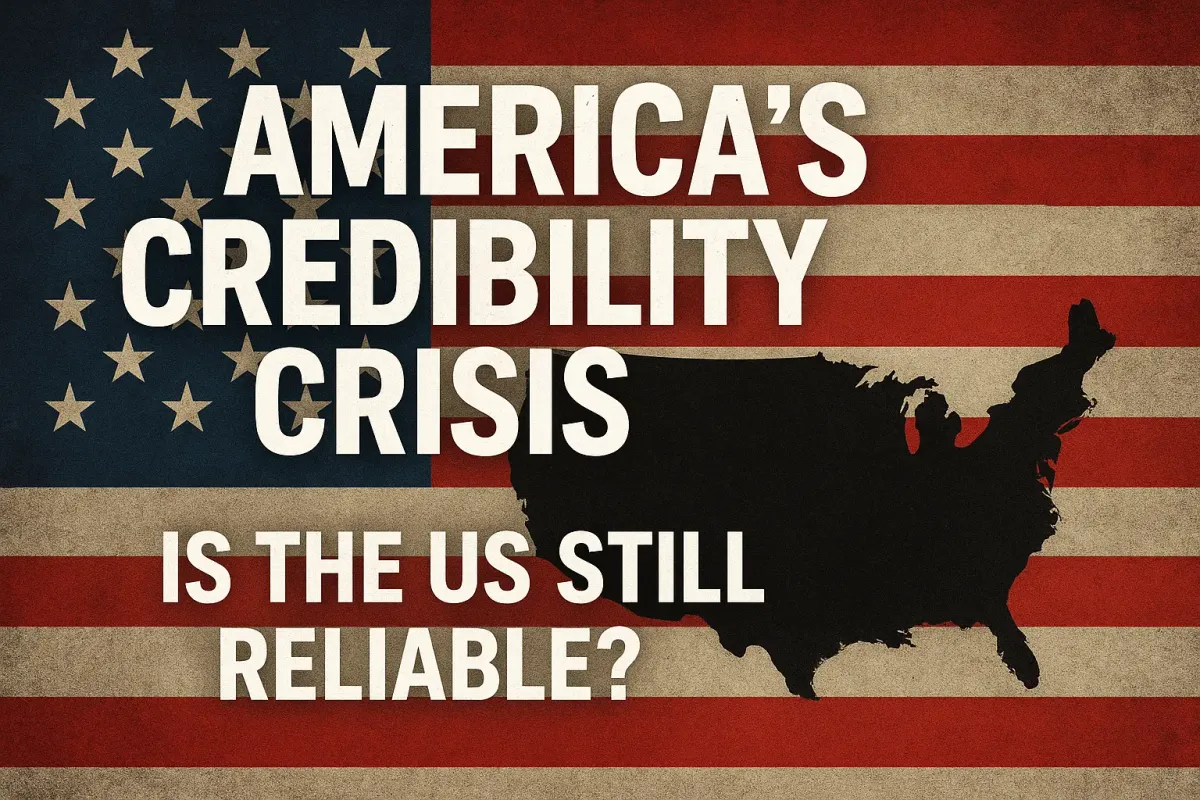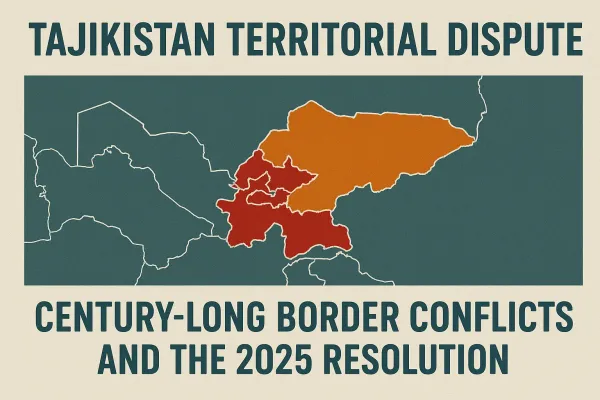America's Credibility Crisis: Is the US Still Reliable?
Can countries still count on America? From Europe to Asia, allies are quietly reassessing their ties with Washington. Canada calls the US "unreliable." Australia builds backup plans. These aren't diplomatic spats—they signal something fundamental has broken in America's global partnerships.

The question on everyone's mind today is simple but loaded: can countries still count on the United States? From European capitals to Asian allies, governments are quietly reassessing their relationships with Washington. The answer isn't black and white, but recent events paint a worrying picture for those who depend on American commitments.
Why Allies No Longer Trust America
America's reputation as a dependable ally has taken serious hits lately. Canada recently went public, calling the US "no longer a reliable partner" – words that would have been unthinkable a decade ago. Australia is quietly building backup plans, expanding defence ties beyond its traditional American alliance. These aren't minor diplomatic spats. They signal something deeper has broken.
For decades, the United States built its global influence on one thing: trust. When Washington made promises, allies believed them. The Marshall Plan rebuilt Europe. NATO protected democracies. This wasn't just military might – it was reliability you could bank on. That foundation is cracking now, and allies are noticing.
Afghanistan Withdrawal and Trade Policy Failures
Afghanistan marked a turning point. The chaotic 2021 withdrawal shocked partners worldwide. While some defend it as a necessary reset, allies saw something else: proof that America might bail when things get tough. If the US could leave Afghanistan after twenty years, what else might it abandon?
Trade policy made things worse. Recent tariffs hit friends as hard as rivals – Canada, Europe, Japan, South Korea, India all faced barriers. When you treat allies the same as adversaries, they start questioning what partnership actually means. Nations expect trade negotiations and disagreements, but blanket tariffs feel like betrayal.
Europe faces its own worries. NATO members wonder openly whether Washington would actually defend smaller allies if push came to shove. Defence commitments that once seemed ironclad now feel conditional. That uncertainty is dangerous when security threats are growing, not shrinking.
How American Politics Undermines Global Trust
Here's what really scares allies: American politics. Partners can handle policy disagreements. What they can't manage is constant flip-flops. Elections might reverse support for Ukraine, NATO funding, or trade agreements. How do you plan long-term security when your biggest partner might change direction every four years?
Information security is another mess. When sensitive intelligence leaks from senior officials, or when policies swing wildly between administrations, allies can't trust the system. It's not about individual leaders anymore – it's about institutional instability that makes America unpredictable.
Middle Eastern countries are already hedging their bets, strengthening ties with China as insurance against American disengagement. This isn't about choosing sides. It's about survival when your traditional partner seems unreliable.
The Real-World Impact on US Alliances
These doubts create real-world changes. Allies aren't cutting ties with Washington, but they're building backup systems. European nations are negotiating bilateral defence deals outside NATO. Japan increases defence spending while dealing with trade tensions that undermine cooperation.
This creates a vicious cycle. When allies diversify partnerships, American influence shrinks. That pushes more countries to seek alternatives. The problem isn't American military power – the US military remains unmatched. The issue is trust. Can partners count on Washington to follow through?
Where America Still Maintains Strategic Advantages
Despite problems, the United States keeps major advantages. American voters strongly support alliances, with nearly 60 percent calling them crucial for foreign policy success. Most Americans trust that European and Asian allies would defend the US if attacked, suggesting public backing exists for mutual commitments.
Geography helps too. America faces fewer direct threats than most major powers, giving it freedom to maintain global partnerships. The capability exists. The question is whether political will matches it.
How the US Can Restore International Credibility
Restoring credibility requires consistency over speeches. Allies handle disagreements and different interests fine – that's normal diplomacy. What they can't work with is volatility disguised as leadership. Policy stability, secure information handling, and genuine respect for partner concerns matter more than grand declarations.
Without change, allies will keep building systems that work around America rather than with it. That would mark a historic power shift – not because rivals defeated the US, but because friends decided the risk wasn't worth it anymore.
Can America Remain a Reliable Partner?
Is America still reliable? It depends who you ask and what day it is. The capability remains intact – economic power, military strength, technological edge. But capability without dependability means little in alliance politics.
Washington's choices at home determine its reputation abroad. If American leaders can demonstrate sustained commitments and policy predictability, partnerships will survive. If inconsistency continues, even old friends will keep shopping for insurance policies.
The decision doesn't rest with allies asking the question. It rests with America answering it through actions, not words. Right now, the jury is still out, but patience is wearing thin.
Continue Reading
- The Indo-Pacific in 2025: Power, Pragmatism, and the Search for Balance - Explores India's role in regional security architecture.
- India's Strategic Balancing Act - 2025: Managing Relations with the US, Russia, and China - Analyses India's multi-alignment strategy and defence partnerships.
- Power Plays: How the U.S. Leverages Energy and Climate for Global Diplomacy – See how major powers use economic governance tools for international influence.





